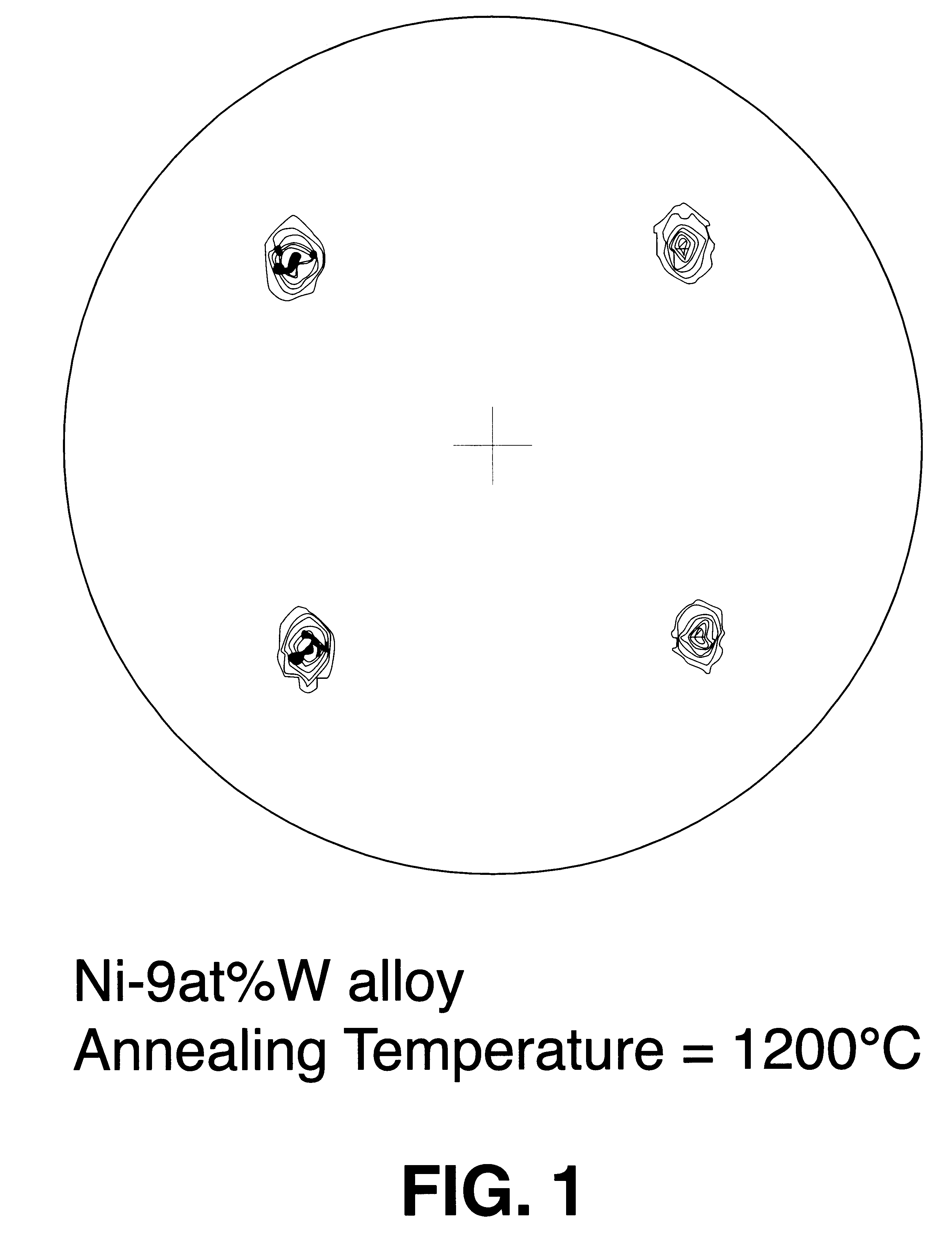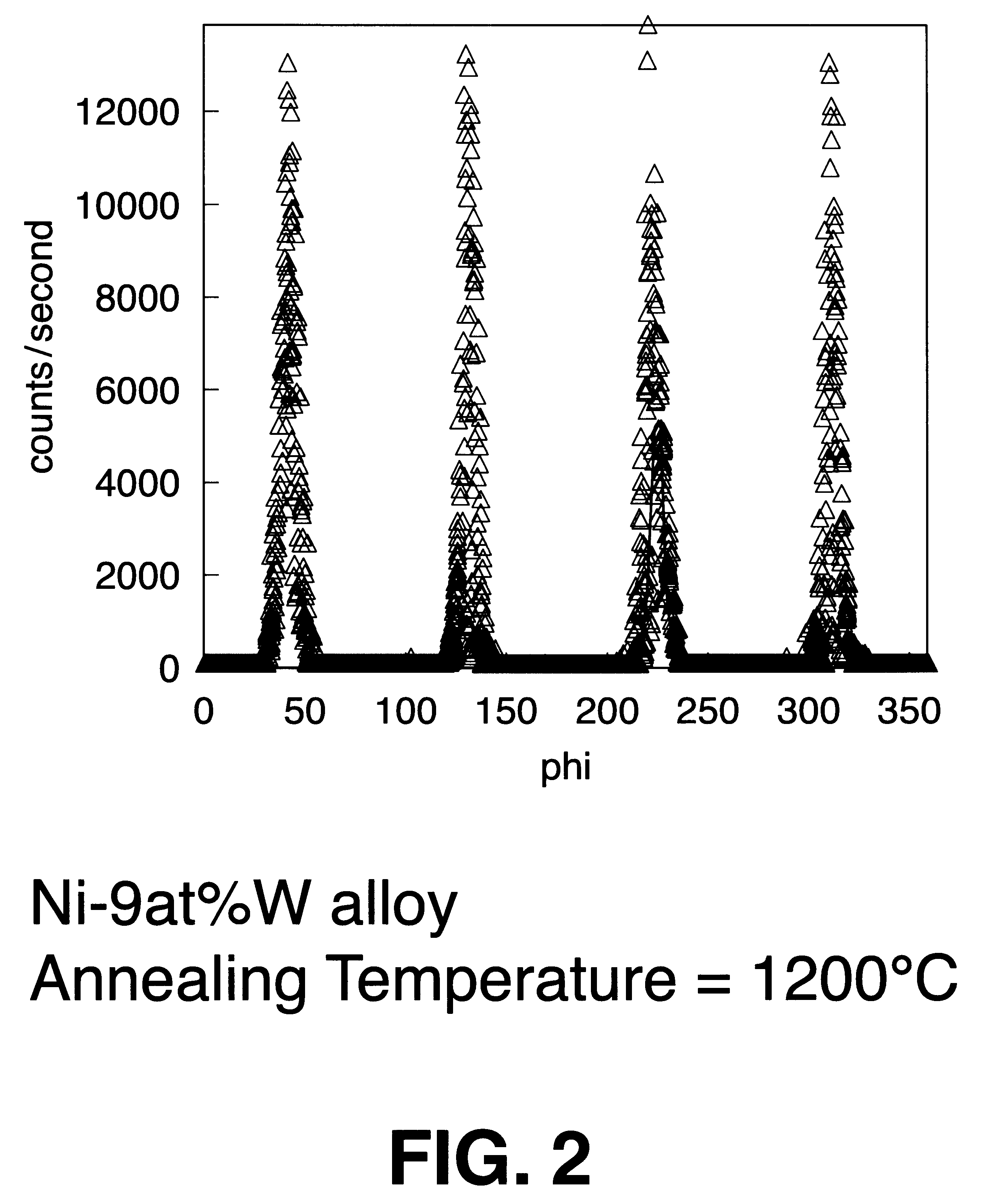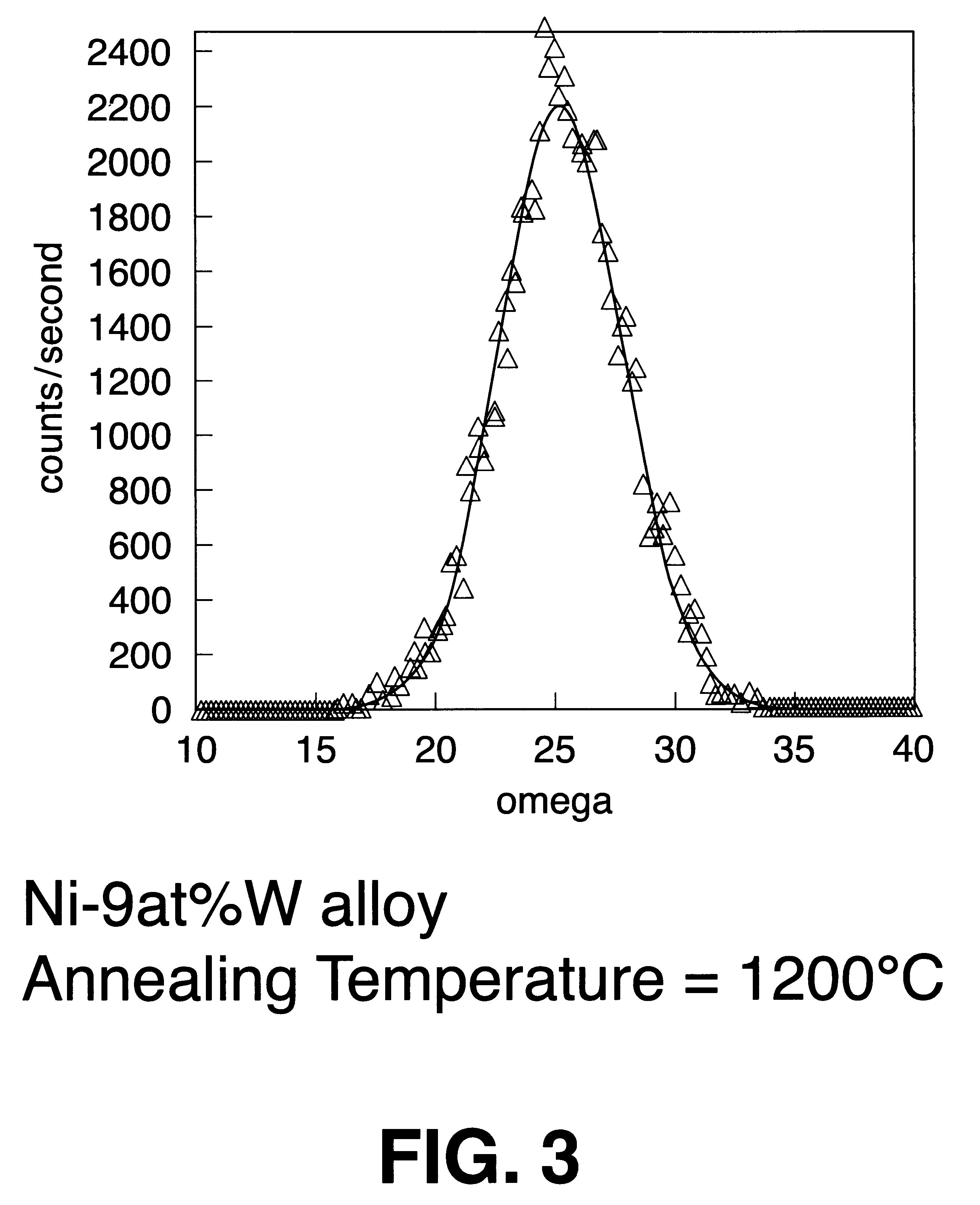Biaxially textured articles formed by power metallurgy
a technology of power metallurgy and textured articles, which is applied in the field of biaxially textured metallic substrates and articles, can solve the problems of difficult scaling up for lengths adequate for many applications, slow ibad, and high cost, and achieve the effect of improving the superconducting properties of ybco films
- Summary
- Abstract
- Description
- Claims
- Application Information
AI Technical Summary
Problems solved by technology
Method used
Image
Examples
example ii
Begin with a mixture of 80% Ni powder (99.99% purity) and 9% W powder. Mix and compact at appropriate pressures into a rod or billet. Then heat treat at 900.degree. C. for 2 hr. The grain size at the end of heat treatment is less than 50 .mu.m. Deform, by rolling, to a degree greater than 90% total deformation, preferably using 10% reduction per pass and by reversing the rolling direction during each subsequent pass. Anneal at about 1400.degree. C. for about 60 minutes to produce a sharp biaxial texture. Annealing is performed in flowing 4% H.sub.2 in Ar.
FIG. 5 shows a (111) X-ray diffraction pole figure of the biaxially textured alloy substrate. As can be seen, only four peaks are evident. Each peak refers to one of four crystallographically similar orientations corresponding to {100}, such that the (100) plane is parallel to the surface of the tape and direction is aligned along the long axis of the tape. FIG. 6 shows a phi-scan of the [111] reflection showing the degree of in-pl...
example iii
Begin with a mixture of 87at % Nickel powder (99.99% purity) and 13% Chromium powder. Mix and compact at appropriate pressures into a rod or billet. Then heat treat at 900.degree. C. for 2 hr. The grain size at the end of heat treatment is less than 50 .quadrature.m. Deform, by rolling, to a degree greater than 90% total deformation, preferably using 10% reduction per pass and by reversing the rolling direction during each subsequent pass. Anneal at about 1200.degree. C. for about 60 minutes to produce a sharp biaxial texture. Annealing is performed in flowing 4% H.sub.2 in Ar.
FIG. 9 shows a (111) X-ray diffraction pole figure of the biaxially textured alloy substrate. As can be seen, only four peaks are evident. Each peak refers to one of four crystallographically similar orientations corresponding to {100}, such that the (100) plane is parallel to the surface of the tape and direction is aligned along the long axis of the tape. FIG. 10 shows a phi-scan of the [111] reflection sho...
example iv
Begin with a mixture of 87at % Nickel powder (99.99% purity) and 13% Chromium powder. Mix and compact at appropriate pressures into a rod or billet. Then heat treat at 900.degree. C. for 2 hr. The grain size at the end of heat treatment is less than 50 .quadrature.m. Deform, by rolling, to a degree greater than 90% total deformation, preferably using 10% reduction per pass and by reversing the rolling direction during each subsequent pass. Anneal at about 1400.degree. C. for about 60 minutes to produce a sharp biaxial texture. Annealing is performed in flowing 4% H.sub.2 in Ar.
FIG. 13 shows a (111) X-ray diffraction pole figure of the biaxially textured alloy substrate. As can be seen, only four peaks are evident. Each peak refers to one of four crystallographically similar orientations corresponding to {100}, such that the (100) plane is parallel to the surface of the tape and direction is aligned along the long axis of the tape. FIG. 14 shows a phi-scan of the [111] reflection sh...
PUM
| Property | Measurement | Unit |
|---|---|---|
| Curie temperature | aaaaa | aaaaa |
| temperatures | aaaaa | aaaaa |
| grain size | aaaaa | aaaaa |
Abstract
Description
Claims
Application Information
 Login to View More
Login to View More - R&D
- Intellectual Property
- Life Sciences
- Materials
- Tech Scout
- Unparalleled Data Quality
- Higher Quality Content
- 60% Fewer Hallucinations
Browse by: Latest US Patents, China's latest patents, Technical Efficacy Thesaurus, Application Domain, Technology Topic, Popular Technical Reports.
© 2025 PatSnap. All rights reserved.Legal|Privacy policy|Modern Slavery Act Transparency Statement|Sitemap|About US| Contact US: help@patsnap.com



